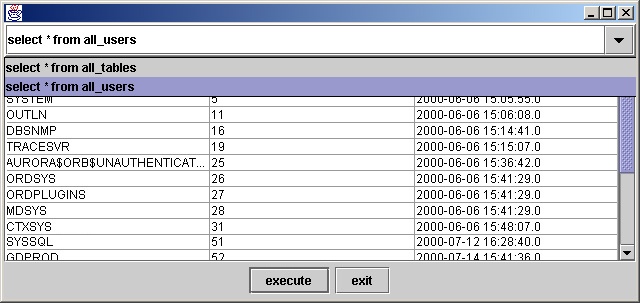Content Server Manual / Version 2110
Table Of Contents
The program cm sql is used to access the databases of Content Servers manually. This program
should only be used by those with precise knowledge of the SQL query language as well as of the table
structure of the CoreMedia system. Table contents can be displayed or manipulated with it.

Warning
Only use read commands on the database when the CoreMedia Content Server is running. If you want to write data via cm sql, be sure that the Content Server is down. Otherwise, data corruption can occur.
The usage is:
cm sql [-script <scriptname>]
If a SQL script is passed via the option -script, the script will be executed.
After entering cm sql, a connection to the CoreMedia system database is opened using the database
settings configured in sql.properties (see
Section 3.2.4, “Properties for the Connection to the Database” in Deployment Manual).
If the command is carried out in a Windows environment, a graphical user interface opens which allows SQL commands to be entered.
If there is no Windows environment active (Unix: no DISPLAY variable set), a command line prompt appears which allows SQL commands to be entered.
DBConnection: opened to: jdbc:oracle:thin:@server:1521:DEVELOP for user: CMPROD database: Oracle version: Oracle8i Enterprise Edition Release 8.1.6.0.0 - Production With the Partitioning option JServer Release 8.1.6.0.0 - Production driver: Oracle JDBC driver version: 8.0.5.2.0 Enter your SQL-Statement, finish with ';' SQL>
Example 3.38. CM sql command line operation

Note
Keep in mind that you have to terminate a SQL statement on the command line with a semicolon but in the graphical interface a semicolon is not allowed as a terminator of the statement.




